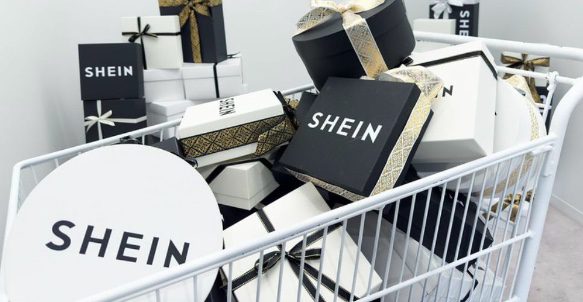
The problem with the Shein influencer trip
In a strikingly obvious attempt at whitewashing, fast fashion giant Shein invited a group of American influencers on a trip to its factory in Guangzhou, China. Unfortunately for both Shein and the influencers, instead of winning hearts and minds, the backlash has been swift and severe.
Influencing the influencers
Showcasing a seemingly pristine “Innovation Factory”, the influencers gushed about being about to see a Shein facility with their “own eyes”. One influencer who was particularly hit hard on social media, Dani Carbonari, posted a video on Instagram calling herself an “investigative journalist” and said, “Like many others, I’ve heard a lot of misinformation. You have to remember our country is filled with so much prejudice – we want to believe we’re the best and no one else can be better.”
Destene Sudduth told her 4 million plus TikTok followers that she expected to see people “slaving away” but, instead, found the workers were “chill” and “not even sweating.”
Shein told The Independent, “Shein is committed to transparency and this trip reflects one way in which we are listening to feedback… We look forward to continuing to provide more transparency around our on-demand business model and operations.”
Shein underestimates us all
While Shein is hugely popular in the U.S., regulatory scrutiny has been growing with protests and American policy makers calling for a thorough investigation of Shein’s supply chain. Shein is in the midst of expanding distribution locations and is rumored to be contemplating an initial public offering. In other words, Shein needs all the good publicity it can get.
Writing for the Independent, Kate Ng reports,
Channel 4 launched an investigation last year that involved an undercover worker filming inside two Shein factories in Guangzhou and found that workers receive a base salary of 4k yuan per month (approximately £434) to produce 500 pieces of clothing per day.
The investigation also found that workers in both factories were working up to 18-hour days regularly and were only given one day off a month. Later, Shein said that after conducting an independent investigation, it found that employees indeed working longer hours than the local laws allowed.
In addition to reported factory labor violations, some of which have been admitted by Shein itself, lab results have linked Shein clothing to the Uyghur Region.
However, Shein’s move was heavy handed at best and may have earned it some new dissenters. On Twitter, one skeptical person said, “The fact SHEIN even did a press trip with influencers to one of its factories is a red flag. Like if everything was a-ok why would they even do the trip?!”
Marketing can’t save Shein
The negative response has been particularly hard on the influencers. Carbonari has had to delete some of her videos and has reportedly ended her contract with Shein. But the real culprit is Shein which has an international obligation to uphold human and labor rights. Instead of genuine transparency, Shein gave us a public relations exercise.
Thankfully people are becoming increasingly informed about the dark underbelly of the fast fashion industry. The fact that Shein’s attempt to manipulate public perception backfired so resoundingly speaks volumes about the collective desire for genuine change.
Freedom United and over 280 organizations, led front and center by survivors and families of current detainees, are advocating for companies to cut ties with the Uyghur forced labor system. What’s certain is that things will not change overnight. In the meantime, the Freedom United community will continue to flag the risk of Uyghur forced labor to companies with existing links to implicated suppliers.
Sign the petition calling for an end to Uyghur forced labor today.
